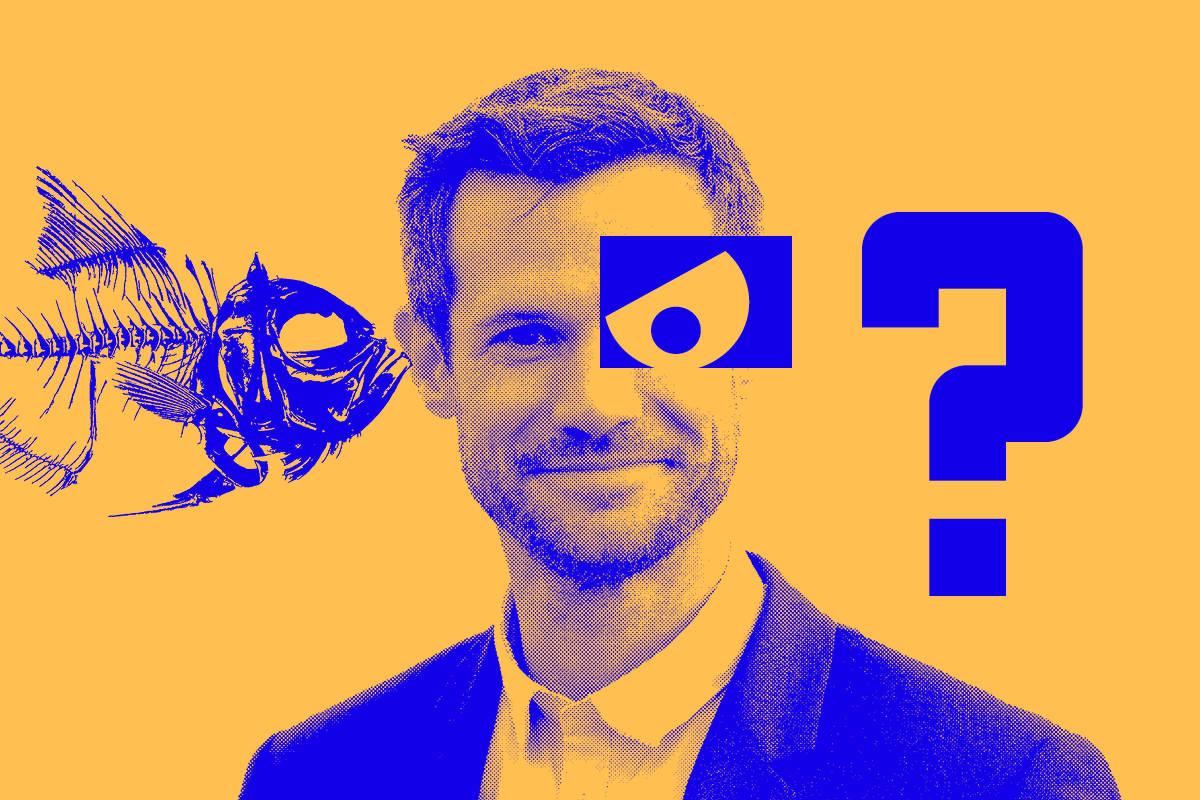HOW WILL PIERRE VOTE?
19.05.2023

Pierre Karleskind is the Chair of the PECH Committee.
On May 24 he will cast his vote for or against the new Nature Restoration Law (NRL) in the EU Parliament. The NRL is the EU’s legacy moment to reverse biodiversity loss. Will he vote it through? Or will he continue the PECH Committee’s commitment to industrial fishing by voting it down? Confusingly Pierre will not be voting himself, someone will vote for him. We think it’s strange that the Chair of PECH is missing during such a vital vote, surely Pierre wants to steer the committee?
Or maybe, for Pierre, it’s a matter of convenience.
He was an oceanographer and the PECH Committee’s stance, fighting on behalf of industrial fishing, is certainly not Ocean friendly. And how does this stance on industrial fishing sit with the RENEW party’s aim to implement the ‘United Nations Convention on the conservation and sustainable use of marine biodiversity’. Maybe Pierre feels it is easier to sit on the fence than challenge his colleagues on two sides?
Pierre also needs to ask questions of certain members of his committee. Like fellow RENEW party member Izaskun Bilbao Barandica. Her brother Aurelio Bilbao is Secretary of the Fishers Guild of Bermeo as well as Bizkaia, and Director of the Producers’ Organisation for Inshore Fishing of Biscay (OPESCAYA), his only concern being for the Bermeo and Bizkaia commercial fishing fleet. Several of OPESCAYA´s fisheries (anchovy, sardine, albacore) proudly display the blue tick of the Marine Stewardship Council, the UK’s premier greenwashing machine. Should Izaskun be allowed to vote given her closeness to industrial fishing?
Putting this aside, isn’t it time for the RENEW party to unite and deliver on its UN inspired environmental ambitions? RENEW really needs to use its collective vote carefully otherwise the EPP will destroy the Nature Restoration Law. The conservative EPP stands against anything that upsets business-as-usual. Under the guise of food security the EPP is arguing the NRL is wrong to place the environment and life on earth above vulnerable fishers. Here’s what EPP MEP Gabriel Mato says about Nature Restoration, “Focusing on the protection of the environment only, while ignoring socio-economic considerations and food security objectives is contrary to the Common Fisheries Policy, the EU Treaties and common sense. Let’s not forget that oceans are vulnerable but fishermen are as well.”
Gabriel Mato is also a member of the PECH Committee. And a very influential one, being the EPP coordinator for fisheries.
We ask Pierre, as Chair, to lead the PECH Committee to a new dawn of responsible fishing policies. It’s time to think creatively about the concerns surrounding fishing jobs – the Nature Restoration Law (NRL) is the best vehicle to do this. It offers the chance to put fishing communities at the top of the agenda by linking them to a meaningful law (NRL). What if coastal fishing communities are test beds for basic income? And this basic income is the chance for locals to care for their local environment, care for the place they live? This sounds a lot better than sitting on the fence and hoping things will be ok.
The fate of the Ocean depends on us all.
Our interventions depend on your support.
What is the Nature Restoration Law?
In June last year, the European Commission tabled the new Nature Restoration Law, which for the first time introduces legally-binding targets to restore degraded ecosystems and reverse biodiversity loss. The new law sets a target to all Member States to restore 20% of the EU’s land and seas by 2030.
Unfortunately, as things stand, the conservation measures contained in the NRL can be blocked by Member States who want to continue industrial fishing and the war on fish. This is because the NRL still uses the dysfunctional legal process contained within the Common Fisheries Policy (CFP). If this happens the NRL is not a law, instead it becomes the Nature Restoration Fishing Option – opt in or out, it’s your choice. And we know where that will lead – EU Member States will opt out, preferring easy CFP economic wins over the harder decisions required to save life in the Ocean and create a better future for coastal communities.
The restoration of 20% of nature is a good start but for Ocean Rebellion this is just a start. The EU must be more radical, 20% must be a near term aim with 80% restoration as its long term goal. Imagine what Europe will look like with 80% of its nature restored – anything less than this is a failure of the imagination.
Ocean Rebellion demands the EU Parliament and Council support the NATURE RESTORATION LAW in full, including the proposal to make Member States legally responsible for restoring nature, giving EU citizens the right to sue Member States for failing to comply.
Ocean Rebellion also demands the EU Parliament includes fishing as a key contributor to ocean degradation within the NRL, highlighting this inclusion by banning bottom trawling in all EU waters, and makes a commitment to reduce fishing by 80%, achieved by ending industrial fishing and empowering coastal communities by promoting low-impact, labour intensive traditional fishing and incentivised Ocean care.
EU Member States must show courage to face down the rich lobbyists, create sustainable jobs and restore the dying oceans.
The fate of the Ocean depends on us all.
We’ll let you know what we’re doing to help.